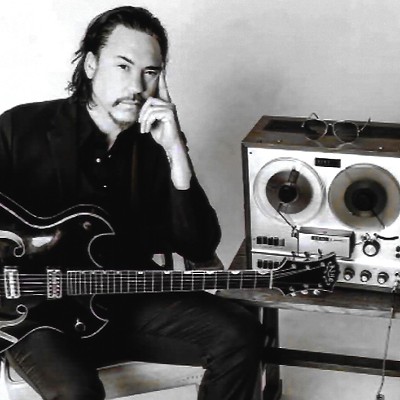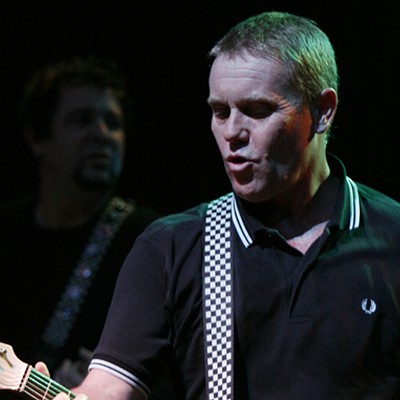Support Us
Houston's independent source of
local news and culture
account
- Welcome,
Insider - Login
- My Account
- My Newsletters
- Contribute
- Contact Us
- Sign out
[
{
"name": "Related Stories / Support Us Combo",
"component": "11591218",
"insertPoint": "4",
"requiredCountToDisplay": "4"
},{
"name": "Air - Billboard - Inline Content",
"component": "11591214",
"insertPoint": "2/3",
"requiredCountToDisplay": "7"
},{
"name": "R1 - Beta - Mobile Only",
"component": "12287027",
"insertPoint": "8",
"requiredCountToDisplay": "8"
},{
"name": "Air - MediumRectangle - Inline Content - Mobile Display Size 2",
"component": "11591215",
"insertPoint": "12",
"requiredCountToDisplay": "12"
},{
"name": "Air - MediumRectangle - Inline Content - Mobile Display Size 2",
"component": "11591215",
"insertPoint": "4th",
"startingPoint": "16",
"requiredCountToDisplay": "12"
}
,{
"name": "RevContent - In Article",
"component": "12527128",
"insertPoint": "3/5",
"requiredCountToDisplay": "5"
}
]
Although Rocks Off had every intention of rambling about something different this week, we thought it would be a lost opportunity to not examine an issue that seems to have been revealed by readers' responses last week. Although many fantastic points were made, we were fascinated to detect that woven amongst the thoughtful insights was an ambivalence about how we as a community view the impact technology has had on our relationship with music.
This topic is pretty broad, so we're going to have to set aside the digital/analog audiophile debate for another time. We also recognize this issue touches on all segments of global culture, from journalism and books to film, philosophy and visual arts, but please, we've only got 500 words here.
Since it's always easier to bag on something than defend it, let's start with technology as an obstacle. From that perspective, the ascent of the MP3 has led to a Brave New World in which the album as a work complete in itself has been undermined by a cultural shift toward singles, and community record stores are dropping like flies (much love to ours in Houston that have survived).
For those who came of age in the era of community stores, this is a loss that is truly felt. They are - or were - one-stop shops where you could be reasonably certain you were going to find someone who can recommend authoritatively which Ornette Coleman record is the best to start with, or someone who would share your enthusiasm that Chuck Prophet is coming out with a new album. (Not to mention someone who knows who Prophet is at all.)
The transition from that collective experience to the isolating experience of sitting at a computer, converting files, wading through God knows how many blogs and navigating the often intimidating structures of sites like iTunes takes a significant amount of resources, time and effort. So much so, in fact, that it's a transition some people just don't make. In that regard, the shift in technology presents a very real obstacle for those who may not like computers (gasp!) or who just prefer to geek out in person with other human beings.
On the other hand, there's also a strong case to be made for technology as a liberating force. Many view the MP3 format as the opener of access to even the most obscure music, breaking the stranglehold recording companies have on talent and adding some democracy to the process of determining what succeeds and what fails.
Apart from these more philosophical points, we heard from many of you that it's pretty damn tough to sneak in tons of live shows and regular trips to the record store between working 60 hours a week and your three-year-old's bath time. The nightmare of the conversion process aside, MP3 players allow us to transport entire music catalogs in pockets and cars, and any number of online music stores are a keystroke away at all hours.
"Smart" applications such as iTunes Genius Recommendations supplant the community-store savant by combing through your digital collection and suggesting new artists, and one could truly go mad with information, crawling from one link to another to another. In the face of life's many responsibilities, it is precisely this ability to engage with music on one's own terms that enables the freedom to continue exploring and adding to the soundtracks of our lives.
We're not so dense as to not recognize that much of this could be summed up as old school versus new school, but it seems there's something more substantial at stake, something which we all intuit. We'll have to consult with our on-staff anthropologist later, but we're going to take an educated guess that music started at the dawn of human culture as a profoundly communal experience, and we don't want to lose that.
We can say with fierce certainty that you'll never listen to or feel about a track quite the same way after you've experienced it live, so perhaps that's it. Perhaps the ability to manifest our passion and continue to enrich our lives with music via technology stands on the shoulders of a past of having identified so closely with the tribalism, ritual and iconography of various musical communities.
We've got our fingers crossed that technology will enrich not eradicate similar experiences for new generations. In the interim, we can hedge our bets by balancing our digital downloads with a beer or two at Cactus Music on the odd Sunday, or a drop by Sound Exchange, making sure when we do that we walk out with some merch.
KEEP THE HOUSTON PRESS FREE...
Since we started the Houston Press, it has been defined as the free, independent voice of Houston, and we'd like to keep it that way. With local media under siege, it's more important than ever for us to rally support behind funding our local journalism. You can help by participating in our "I Support" program, allowing us to keep offering readers access to our incisive coverage of local news, food and culture with no paywalls.
Sarah Webster
Trending Music
- Houston Concert Watch 4/17: Adan Ant, Bad Religion and More
- Latin Grammy Winning Singer-Songwriter Andrés Cepeda Returns to Houston
- Top 10 Butt-Rock Bands of All Time
-
Sponsored Content From: [%sponsoredBy%]
[%title%]

Don't Miss Out
SIGN UP for the latest
Music
news, free stuff and more!
Become a member to support the independent voice of Houston
and help keep the future of the Houston Press FREE
Use of this website constitutes acceptance of our
terms of use,
our cookies policy, and our
privacy policy
The Houston Press may earn a portion of sales from products & services purchased through links on our site from our
affiliate partners.
©2024
Houston Press, LP. All rights reserved.




